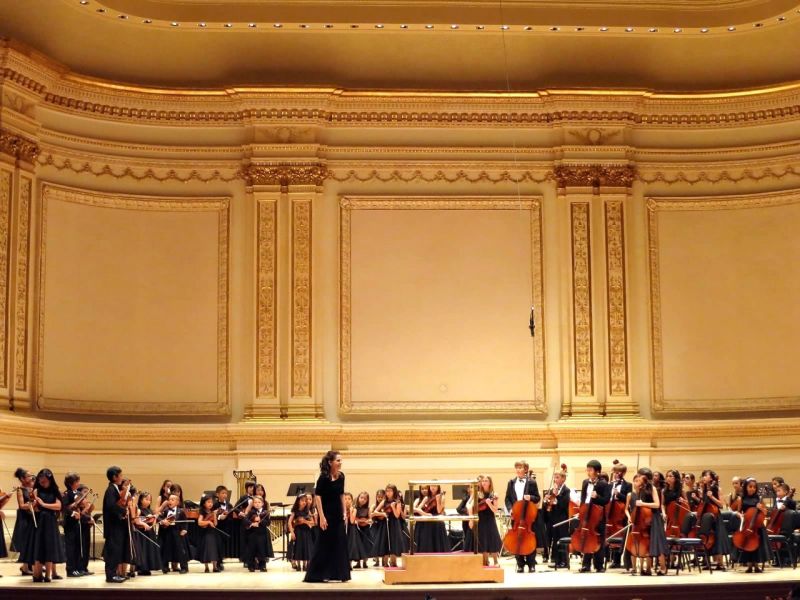Building a Successful Music Lesson Program: Step 5—Tips & Tricks
In the first four articles, I described how to set up and build a successful music lesson program. Finally, I’d like to share some of our best ideas. These are some tips and tricks to keep in mind that have been critical to our success.
Set high standards. I’ve said this before, but it bears repeating. Set the bar high, and your students will rise to it. If you’re not a string player and don’t know what high standards are for strings, bring in staff who do know, even if you have to pay them a little more. The ideal is to find people who are willing to work within your budget and understand their growth potential with your program.
Set guidelines for Internet posts. Have guidelines and rules for what parents post on the Internet. Discourage postings of their children playing badly. Limit filming in class. What you think sounds good now may be embarrassing in two years. That said, do post high-quality videos of your students. Be sure to get parents to sign a release before posting.
Represent your business. My husband wears many hats in our program, from executive director to chief gardener, and we often debate about how he wants to dress for work. I believe that if you’re going to charge high rates, you must maintain a high level of professionalism. On the other hand, I appreciate that even if he’s not professionally dressed, I always am. I encourage our teachers to do the same. Also, our monthly recitals are “fancy,” which teaches kids to put their best foot forward.
Invest in quality instruments. Invest in high-quality instruments, from the violins you rent to the pianos in your studios. It’s tempting to buy pianos from the local thrift shop, but a gently used model from a reputable piano store will go a long way to making parents feel comfortable with your fees. Quality instruments will also help your orchestra sound better. When I first started out, I hunted for the best deals. Two years later, we were invited to perform at Carnegie Hall, and I quickly upgraded my entire line. It paid off—the orchestra sounded great and won the highest rating. Kids and parents were thrilled, and business picked up. Be sure you have good deposits on your expensive instruments, and ask the parents to get insurance.
Hire the best teachers. In our early years, we hired undergraduate and graduate conservatory students and experienced a lot of turnover. I learned the hard way that the best teachers for our program are already into their music careers and have varied teaching experience. There are always exceptions—younger teachers who come highly recommended, have roots in your area and have the potential to grow with your business. We pay a lot more for teachers than when we first started, but the program is better for it.
Provide quality education. When people come to our school, they can expect to get a music education that’s much more than lessons. I‘ve created a curriculum that emphasizes good form, note-reading, ear training, performance and a healthy sense of competition. We take pride in preparing our students for the world outside of our program and helping bring them to a level where they can aspire to a school like Juilliard—and get in.
Love what you do, and the money will come. No one should go into this business for the money. Running a music lessons program requires long hours, lots of stress and sometimes heartache. Still, the rewards are huge. I’ve witnessed firsthand how music can transform lives, for our students and their families.
Use the “Blink” method. After I read “Blink” by Malcolm Gladwell, I felt more confident in my decision-making process. Now, I rely more on instincts than my own head. For example, in the past, I’ve hired people that my gut said were the wrong fit. Of course, my gut turned out to be correct. Don’t be a people pleaser. Trust your instincts.
Don’t burn out. A business like this can overtake your personal life. There’s a tendency to keep taking on new business. It’s crucial to hire more talent to help out or to adopt a business model like mine—maintaining a smaller, higher-level, more expensive program.
Susan Pascale is founder and director of the nationally acclaimed Pascale Music Institute. Her two books, The Pascale Method for Beginning Violin and Practicing is for the Birds: The Ultimate Practice Organizer With Reward Stickers, are published by Alfred Music. Her children’s orchestras have been featured in national publications and on television. To see and hear her students in action, go to pascalemusicinstitute.com.

Join Us in Person for The NAMM Show
With a focus on innovation, the education offerings at The NAMM Show will help to prepare your business for the year to come.

Discover the Benefits of a NAMM Membership
Power our industry’s advocacy efforts by joining the NAMM community, featuring show access, education, discounts, networking, the Global Report and more!
